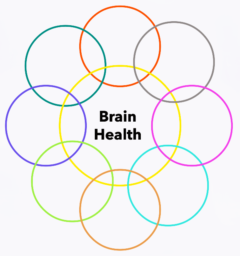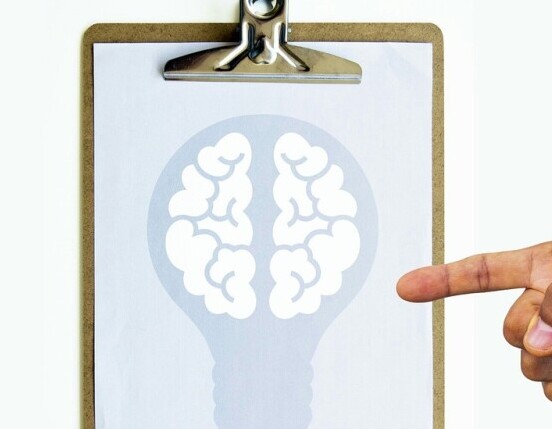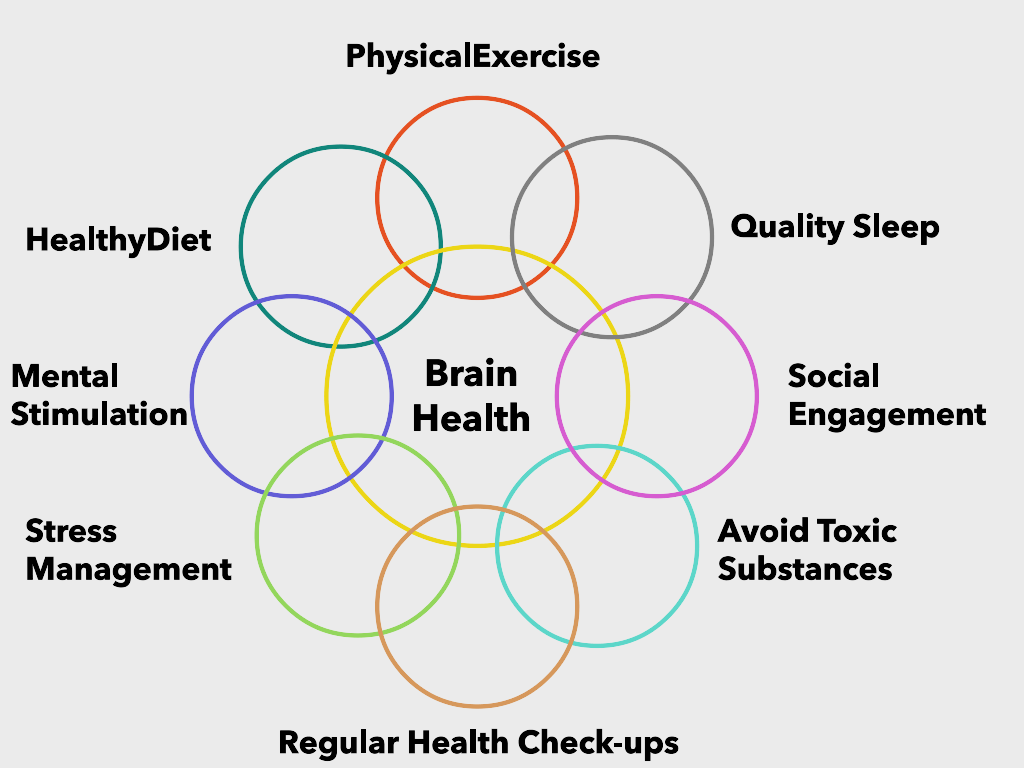
Have you ever put on your running shoes and taken a brisk walk around the neighborhood with the goal of clearing your head? If so, you might’ve felt more mentally sharp afterward. That’s not a coincidence. Exercise has a remarkable effect on your brain, especially when it comes to memory and cognitive function.
Let’s take a quick look at the current understanding from the scientific community. Regular physical activity is increasingly recognized not just for its physical benefits, but also for its positive effects on the brain. When you exercise, you’re not only building stronger muscles and bones but also cultivating a more robust and resilient mind.
One of the key processes here is neurogenesis, or the birth of new neurons, particularly in the hippocampus, an area directly involved in memory formation and consolidation. It’s like adding a new storage unit to your brain’s memory warehouse every time you work out.
But it isn’t only about growing new brain cells. Exercise also plays a crucial role in reducing stress levels, which can wreak havoc on memory. By engaging in physical activity, you help your body keep the effects of stress at bay, potentially aiding memory retention and recall.
With these foundational points laid out, I’m going to delve into the fascinating biology that underpins this phenomenon in the next section. We’ll look at how neurotransmitters and brain chemicals orchestrate this memory-enhancing magic show, with exercise as the star performer.
The Science Behind Sweat and Remembering: Exercise-Induced Memory Enhancement
I’m going to dive straight into the heart of how breaking a sweat can actually sharpen your mind. Exercise isn’t just about building muscle or improving your cardio; it’s also a powerful trigger for your brain.
Let’s start with neurotransmitters. These are your brain’s messengers, and when you exercise, their production kicks into high gear. Specifically, dopamine and serotonin levels, which are linked to memory and learning, get a significant boost.
Now, what’s even more fascinating is the role of a protein called brain-derived neurotrophic factor (BDNF). Think of BDNF as fertilizer for your brain. It promotes the growth of new neurons and helps repair and protect older ones. And the good news is exercise increases the levels of BDNF, giving your brain the tools it needs to build and maintain an effective memory system.
That rush you feel after a good workout? It’s not just endorphins. It’s increased blood flow and oxygen making its way to your brain. This isn’t just a short-term win; over time, these aerobic exercises can lead to more robust brain structures, including areas like the hippocampus, which is critical for forming and retaining memories.
The benefits are long-term too. Regular exercise isn’t a quick fix; it’s a lifestyle change that can lead to substantial improvements in brain function and memory. Studies show that individuals who maintain an active lifestyle tend to have better cognitive function and memory as they age compared to sedentary peers.
Now, with the connection between increased blood flow to the brain and memory firmly established, it’s clear that there’s a lot more at play than just temporary improvements. Your brain is getting all the necessary ingredients to perform at its best, bolstering your ability to remember, learn, and process information.
From Gym to Cognition: Types of Exercise That Promote Memory Retention
In my experience, not all exercise is created equal, especially when it comes to brain health. Aerobic exercises, like running, cycling, or swimming, are fantastic for your memory because they get the blood pumping. You’re going to find out about the sweet spot between aerobic and anaerobic exercises that can optimize your brain function.
Aerobic exercise isn’t the only player in the game, though. Strength training also has a place in boosting cognitive abilities. By engaging in activities like weightlifting or resistance exercises, you stimulate your muscles and your mind simultaneously, fostering new neural connections.
Don’t worry too much about crafting the perfect regimen from the start. The key is to choose something that resonates with you and that you can stick with consistently. Consistent exercise, rather than intensity, has shown potential for long-term memory retention.
There’s also significant evidence regarding the benefits of mind-body exercises, such as yoga and tai chi. These workouts combine physical movement with mental focus and can lower stress levels and increase concentration, contributing to better memory retention over time.
If you want to truly integrate exercise into your life for the sake of your memory, start by scheduling regular workouts, just as you would any other important activity. Think park runs, swimming sessions, even brisk walks if you like. Remember, you can always adjust your approach down the road.
As we prepare to jump into the real-world impact of these exercises, it’s important to remember that you’re not just doing your body a favor by staying active; you’re setting the stage for a sharper, more engaged mind. And that’s a benefit worth sweating for.
Real Stories, Real Improvement: Evidence and Case Studies on Exercise’s Role in Memory
Here are some intriguing examples that bring these concepts to life. Imagine reading about someone just like you who improved their memory just by making exercise a regular part of their life. These anecdotes are not only inspiring but show that the science translates into real-world benefits.
You’re going to find out about a range of studies, some focusing on younger adults and others on older populations, which clearly demonstrate the memory-boosting effects of physical activity. Results from these studies illustrate significant improvements in daily life, academic performance, and even work efficiency.
Consider the interesting trend observed in population-wide research: societies with higher levels of physical activity tend to report fewer cases of age-related memory decline. This is a compelling reason to consider exercise as part of our strategy to maintain cognitive health as we age.
Lastly, let’s not overlook the support technology offers. With a plethora of fitness and brain-training apps at our fingertips, it’s easier than ever to keep track of our exercise routines and cognitive progress. These tools help us make that crucial link between staying active and staying sharp.
In my opinion, the connection between exercise and improved memory is clear. By embracing an active lifestyle, you’re not just benefiting your body, but you’re also making a lasting investment in your brain health. Remember, your first attempt at integrating more exercise doesn’t need to be intense; start with something manageable and build from there.



